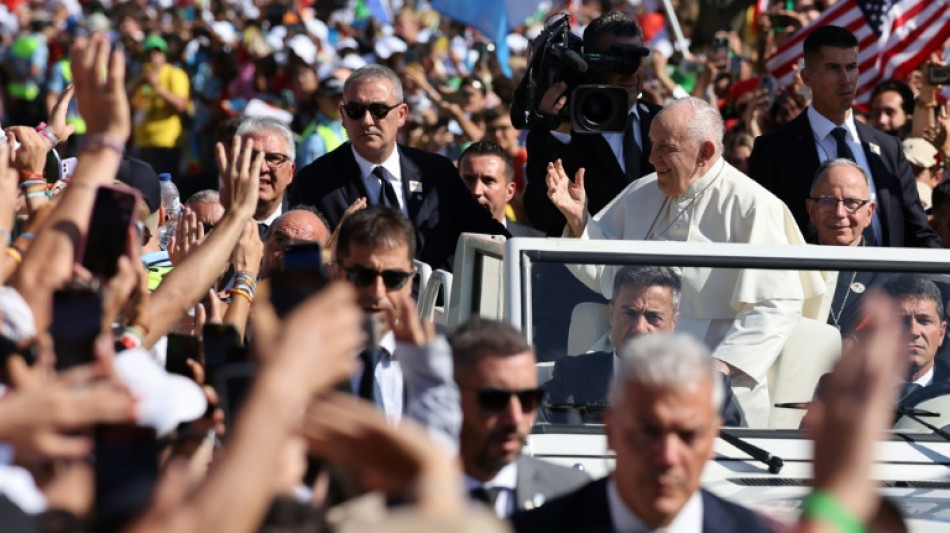Through magisterial Vatican pronouncements about the dangers posed by the warming planet, Pope Francis gave the Roman Catholic church a voice that influenced climate change talks, experts said.
Amidst an outpouring of praise for the late pontiff, the United Nations climate change chief singled out Francis's commitment and skills in putting the spotlight on the risks to the planet and its poorest inhabitants.
Pope Francis was "an unflinching global champion of climate action", said UN climate change executive secretary Simon Stiell, organiser of the fraught international talks on limiting temperature rises.
"He had a deep working knowledge of complex climate issues, and his leadership brought together those most powerful forces of faith and science to deliver unimpeachable truths, highlighting the costs of the climate crisis for billions of people," Stiell added.
Brazil's President Luiz Inacio Lula da Silva, who will host the next UN talks in November, said Francis had spoken about climate change with "simplicity", "courage" and "empathy".
Nigeria's President Bola Tinubu said Francis had been the world's "most trenchant voice" on climate change.
- 'Inspired by Amazonian wisdom' -
Francis's predecessor, Benedict XVI, was already known as the "Green Pope" because of his ecological advocacy. But Francis went further, issuing the first Vatican encyclical, one of its most important policy documents, devoted to the protection of humanity's "common home".
Complaining that there had not been an adequate response, Francis issued an apostolic exhortation -- a lower level but still serious pronouncement in 2023 -- addressed "To All People of Good Will on the Climate Crisis".
According to Charles Mercier, an expert on Catholicism, Francis brought a different approach to Benedict with his "Laudato Si" (Praised If) encyclical.
The Argentine pontiff "was also inspired by Amazonian wisdom, he included non-Western elements in the corpus, relating to nature, something that some have criticized him for," he added.
- 'A moral compass' -
"In the climate debate, he has always been with the poor, with indigenous people," said Oscar Soria, an Argentine activist who has taken part in climate talks.
"He was also an Amazonian pope, a pope for the forests, for the oceans," added Soria.
Even before becoming pope, Francis raised climate themes at a 2007 conference of Latin American bishops, Soria said.
A few months after Francis's "Laudato Si" document, the Paris climate accord on seeking to limit the global temperature rise to two degrees Celsius was adopted at the COP21 talks. Soria said the pope had an influence.
Francis was "a pope that supported different environmental causes when these causes needed a powerful voice," said Soria.
"He has been a moral compass in the negotiations always since 2015 onwards, he's always been practising quiet diplomacy," said the activist.
"In moments where we were almost about to lose consensus in the climate agreement, he made all the different calls necessary to protect the Paris Agreement."
- Critical of climate sceptics -
Laurence Tubiana, one of the architects of the Paris accord, said that "Laudato Si" had "inspired" a new generation of Christian climate activists. The encyclical clearly stated that human action had brought the world to the "point of rupture".
The encyclical set off a global debate that religious texts have rarely achieved in recent times. His moral message slammed consumerism, individualism and the reckless pursuit of economic growth that ignored the planet's plight.
His apostolic exhortation to the faithful, "Laudate Deum", came out just before the COP28 talks in Dubai.
He called on Catholics to divert investment away from fossil fuel and for the Vatican to pursue carbon neutrality.
Francis attacked climate sceptics -- "certain dismissive and scarcely reasonable opinions that I encounter, even within the Catholic Church".
Poor health prevented Francis from going to Dubai, but on a trip to Indonesia in September 2024 he again raised the "environmental crisis".
"He created not just a movement but a spirituality and a sensitivity towards the earth, towards the most vulnerable."
P.Verhoeven--LCdB
